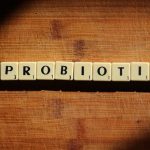Your smile is your greatest asset. It can be affected by gum disease, bad breath, and inflamed or bleeding gums. Gum disease can lead to more serious dental problems.
Gingivitis, the first stage of periodontal diseases, is called gingivitis. This is when the gums and bone that support the teeth become infected. Periodontitis is when the gums become detached from the teeth. This can lead to bone loss, loosening teeth or even the loss of teeth.
According to the Center For Disease Control (CDC), 47.2% have some form of periodontal disease. This percentage tends to rise with age.
Periodontitis can be reduced by good oral hygiene, which includes flossing regularly and brushing your teeth twice daily. Your dentist can also check for and diagnose periodontal diseases by scheduling regular dental exams.
Periodontitis is an inflammation disorder. A nutritious, anti-inflammatory diet can help reduce inflammation, fight harmful bacteria and heal the gums. Here are six foods that have been shown to prevent periodontal diseases.
1. Blueberries
Blueberries are a great anti-inflammatory and anti-bacterial food that can be eaten to prevent gum disease. They are rich in natural polyphenol compounds which inhibit plaque buildup and prevent harmful bacteria from adhering.
Blueberries may also be used to create new products for periodontal disease prevention. Polyphenols and other berry extracts can be used in toothpaste and mouthwash .
2. Green Tea
Green tea is a great way to prevent periodontal disease.
Green tea has a high level of catechins. These help to reduce inflammation and bone loss.
One study found that green tea has antioxidative qualities that reduce damage to gum tissue and decrease gingival bleeding. The antioxidative properties promote periodontal healing, lower the risk of dental caries and oral cancers, as well as reducing the risk of bad breath and other oral diseases.
3. Broccoli and Cauliflower
Research has shown that patients suffering from coenzymeQ10 (CoQ10) deficiencies are more likely to develop gum disease than those with normal levels.
You can increase your body’s CoQ10 levels by eating more broccoli and cauliflower. This will also help to reduce gingival inflammation. Antibacterial foods rich in CoQ10, as well as antioxidants, can help reduce the risk of gum disease.
Other food sources that have high CoQ10 levels include spinach and mackerel.
4. Salmon
Studies have shown that omega-3 fatty acid rich foods such as salmon can reduce periodontal disease. Omega-3 fatty acids have powerful anti-inflammatory properties, and have been shown to reduce inflammation at time.
Consider taking an omega-3 supplement if seafood isn’t a regular part or you don’t like eating fish.
5. Cacao
Sugary foods and drinks can cause tooth decay and other oral sensitivities. You may be surprised to know that you can still enjoy delicious treats every now and again.
Cacao, like green tea, has high levels of catechins. These are flavonoids that help prevent cavities and plaque formation. This rich chocolate with espresso undertones is very beneficial for your oral health.
Cacao bean husk (CBH) is also present in cacao, which hardens enamel. Studies have also shown that cacao’s compounds are more effective at fighting tooth decay than fluoride.
If you are looking to buy cacao at the grocery, ensure it doesn’t have a lot sugar and choose raw chocolate that is 70% or more.
6. Probiotic foods
Probiotics are still relatively new in the field of disease management. Recent studies have started to examine the effects of probiotics on oral health, including periodontal disease, gingivitis, and gingivitis.
Although there are many different findings regarding how probiotics affect gum inflammation and plaque buildup in the mouth, there isn’t consensus about whether probiotics can be used as a viable treatment option for periodontitis.
However, probiotics can produce good bacteria in your mouth called Lactobacillus Acidophilus. This can help protect you against harmful oral pathogens.
Sauerkraut, yogurt, kefir, and fermented foods are all rich in probiotics.
Stop Periodontal Disease from Getting in the Way
A healthy, nutritious diet can make a big difference in your oral health. You’ll never have again to worry about your smile if you include more anti-inflammatory foods into your diet.









